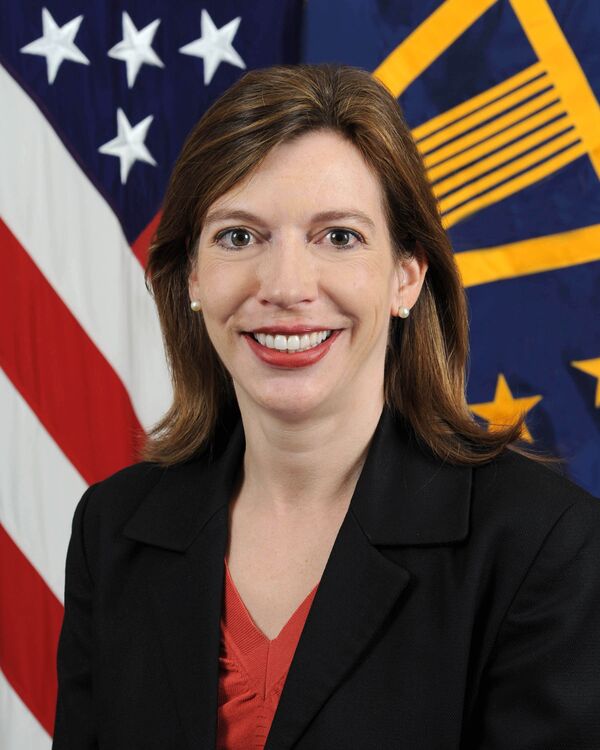When Evelyn Farkas announced she was leaving her position as deputy assistant secretary of defense for Russia, Ukraine, and Eurasia, US officials expressed deep regret.

"There are not a lot of Europe experts in this administration who have a long record of accomplishment," a senior official told Politico. "There’s no doubt this leaves the Pentagon weaker in terms of its policy-making on European issues."
But, good news! Farkas may no longer be a defense employee, but she’s not done offering advice — albeit based largely on misinformation.
“We have to continue reassuring, but we have to do one better, we actually have to deter,” she told reporters at a Defense Writers’ Group breakfast on Wednesday, according to Breaking Defense.
"First of all, clearly, Russia is not the Soviet Union and they are not strong economically and they are brittle politically, but that doesn’t mean they’re not a danger."
According to Farkas, that “danger” refers to modern Russia’s brazen disregard for the horrors of nuclear war.
"In the Cold War…there was a healthy respect for the immense, horrific power of nuclear weapons and that was really the last resort," she said, adding that Russia currently follows a doctrine of "escalate to deescalate," which she finds "highly alarming."
Of course, this criticism seems rather misplaced, given that the United States is the one positioning nuclear weapons in Eastern Europe and preparing to spend over $100 billion developing a new long range strike-bomber capable of carrying a nuclear payload.
But she goes on.
"I’ll go out on a limb beyond what [the Obama] administration would say: the NATO-Russia framework agreement is broken. The Russians broke it," she said, referring to the West’s belief that Moscow sent troops into Eastern Ukraine, a claim for which officials have provided no evidence.
To respond to that "broken agreement," Farkas referenced a part of a 1997 accord which stated that NATO pledged "additional permanent stationing of substantial combat forces."
"I was very excited to see this past week Secretary Kerry go through Central Asia. We need more high-level attention being paid to the countries that feel directly threatened by Russia…not just Ukraine but Moldova, Georgia, Azerbaijan…The countries around the periphery of Russia, they need our political attention," she said.
"They also need our economic assistance and they need our military assistance [to] deter Russia."
This type of alarmist attitude toward Moscow certainly isn’t unheard of in the US government, but at least we can rest assured that Farkas is no longer a part of making policy decisions.
Still, her influence is certainly being felt.
"I want to actually commend Deputy Secretary [Robert] Work because he really took on the challenge of how do we better deter Russia, very seriously and I would say aggressively," she said.
"He has made sure that there is funding directed to deterring Russia in areas where we have specific concern – and I can’t go into all of them, obviously – but he is taking a sharp look at the budget for of course FY16 but also more importantly FY17."






